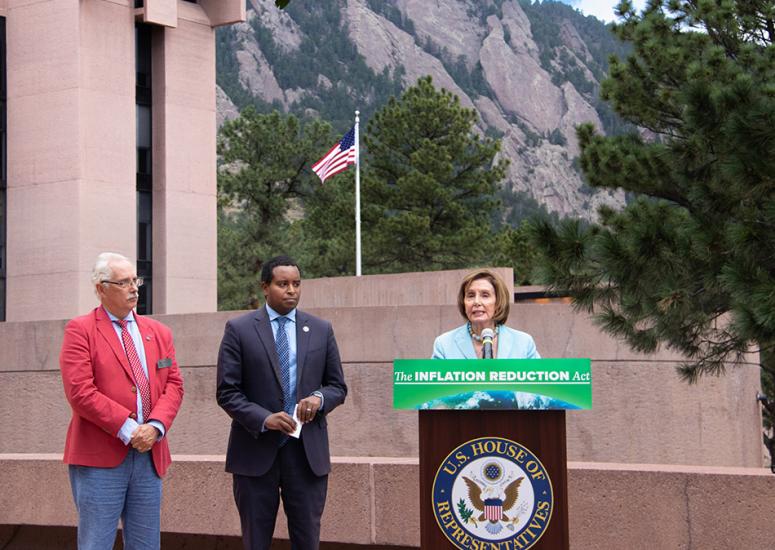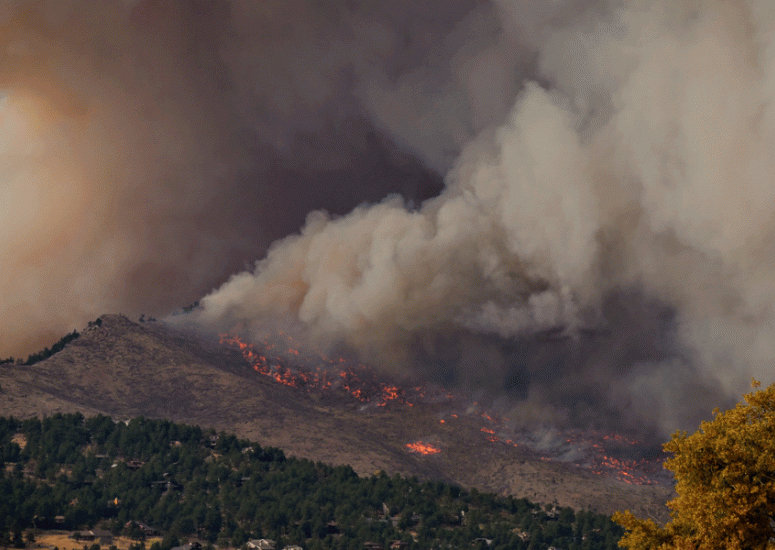Tag: News Release
-

Scientists brief Pelosi and Neguse on research advances
Pelosi calls visit "transformative" and lauds research efforts.
- Climate,
- Government Relations
-
Reconstructed NCAR Research Aviation Facility supporting major field campaigns
NCAR is celebrating the completed reconstruction of a major research facility in Colorado that supports airborne science projects across the globe.
- Organization
-

Wildfire experts provide guidance for new research directions
Fire experts across the nation call for a more strategic and interdisciplinary approach to pursuing wildfire research and protecting vulnerable communities.
- Air Quality,
- Climate,
- Weather
-

California faces heightened risk of megafloods
Climate change is sharply increasing the risk of a catastrophic megaflood in California that could submerge large swaths of the state and displace millions of residents.
- Climate
-
Nuclear war would cause global famine
Nuclear war would have profound effects on global food production, resulting in devastating famine.
- Climate
